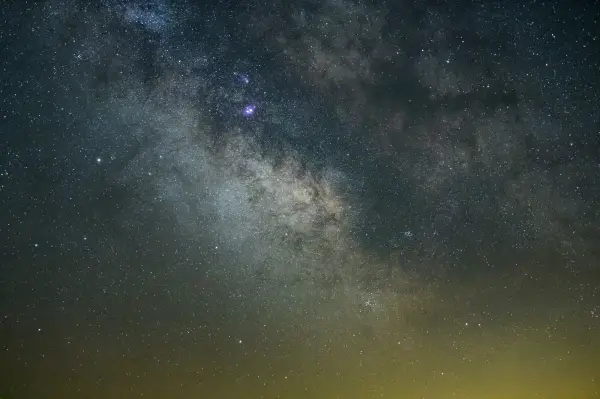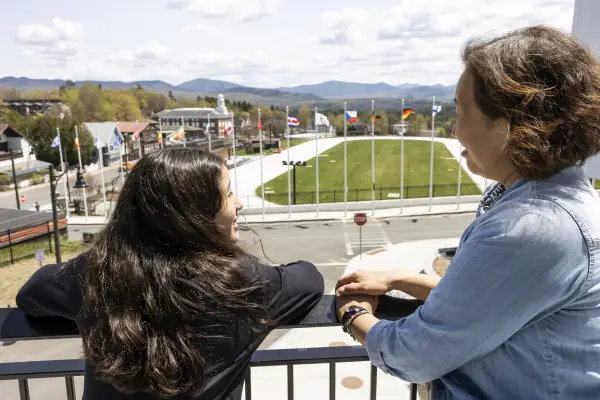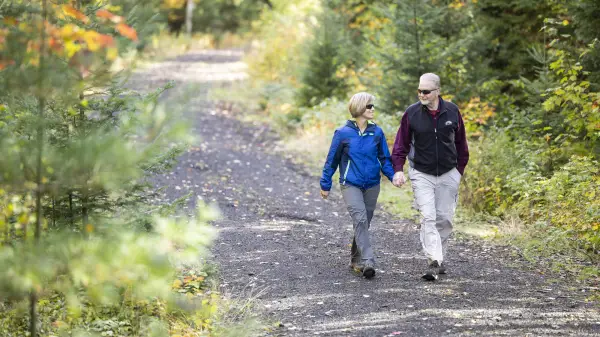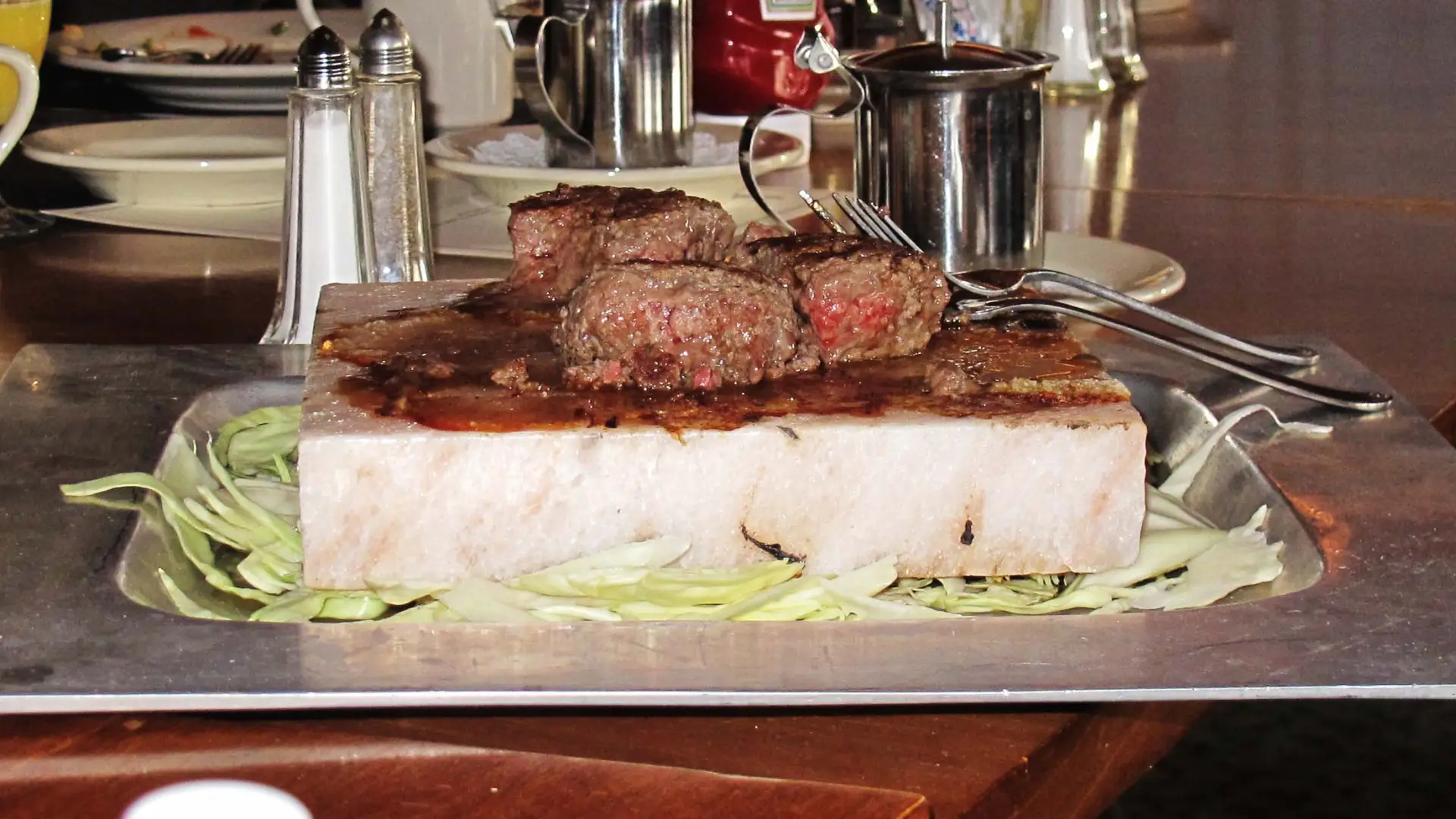
This week my office colleagues and I were invited to a Maple Breakfast sponsored by The Wild Center. This timely event was all about maple and bringing us up to date about what's happening in the maple world these days. The event was held at Generations Restaurant, with a menu based on maple and prepared by Chef David Hunt. Everything was scrumptious and the meal was highlighted by Chef Hunt's presentation of bison filets cooked on a Himalayan salt block, dating from a gazillion years ago or so, and drizzled with maple syrup just before serving - incredible! Chef Hunt claims "maple has invigorated my passion for cooking". It shows.
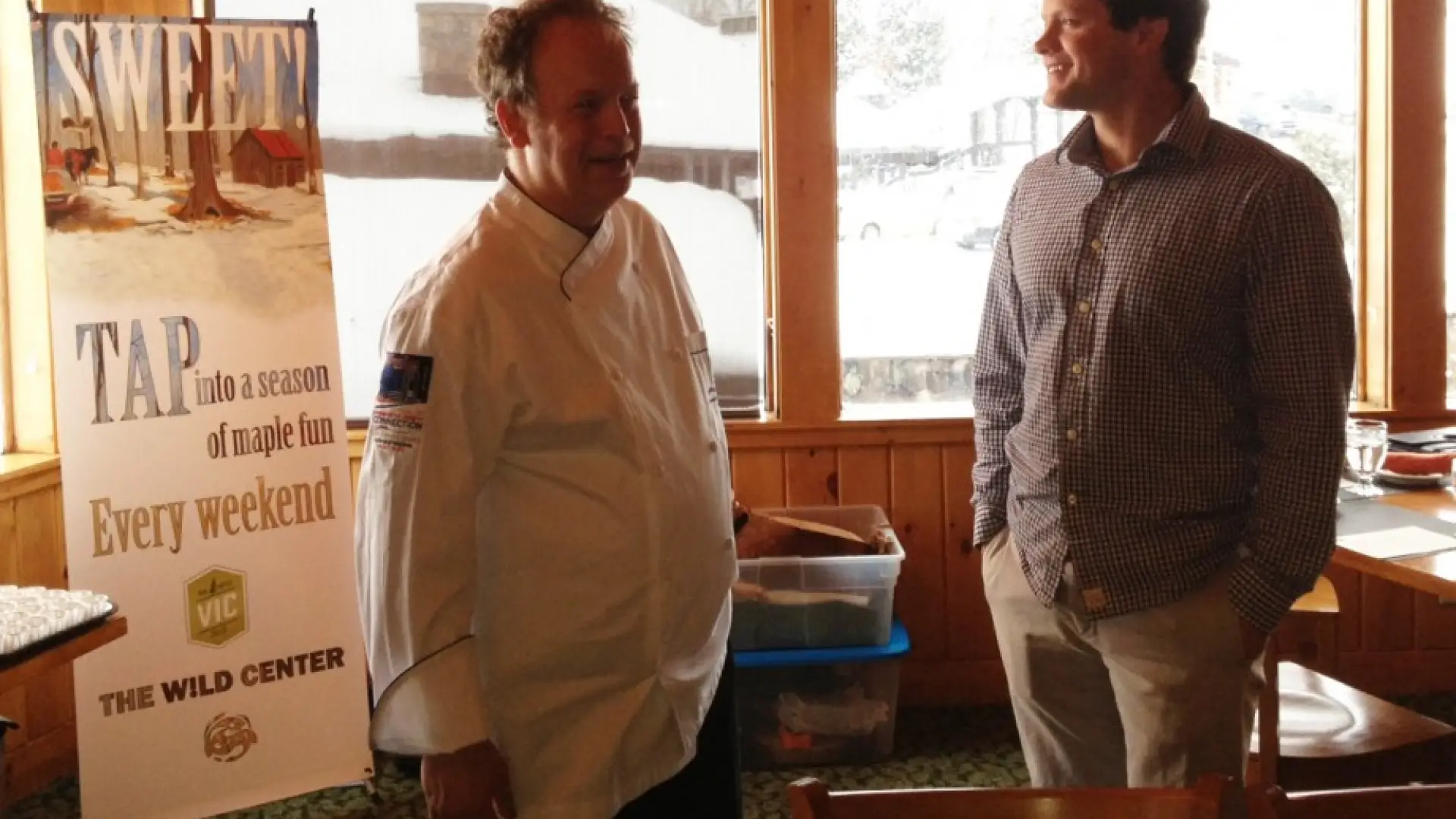
For those of you who have never tasted maple syrup, there is nothing like it. Commercially produced maple flavored pancake syrup is merely flavored corn syrup. It's neither good, nor good FOR you! Maple products are more healthy sweeteners than any others, with less calories and easier to digest. As a matter of fact, maple sap (the liquid directly from the maple tree before processing) is loaded with anti-oxidants and a very healthy alternative to drinking water (at least during the sap run).
Several speakers from The Wild Center, The Paul Smith's College Visitor's Interpretive Center and Uihlein/Cornell Maple Research Station provided us with lots of information about what's happening with maple production in the region and around the state. It's a liquid with a limited supply and very limited production window, but maple's also the fastest growing agricultural industry in the United States. Average consumption in the US is a mere 1 1/2 to 3 ounces per person per year. There is enormous potential for growth.
Maple sap runs only in the spring when daytime temperatures rise above freezing and nights are still cold. Depending on the tree and its size and age, some trees can produce up to 80 gallons of sap per season, while some produce less than ten. It takes approximately 40 gallons of sap to make one gallon of syrup, making it the highest valued liquid in the world today. There is also granulated maple sugar, maple cream, maple candy and a host of other products incorporating these substances. Local retail stores offer a large variety of maple products year round.
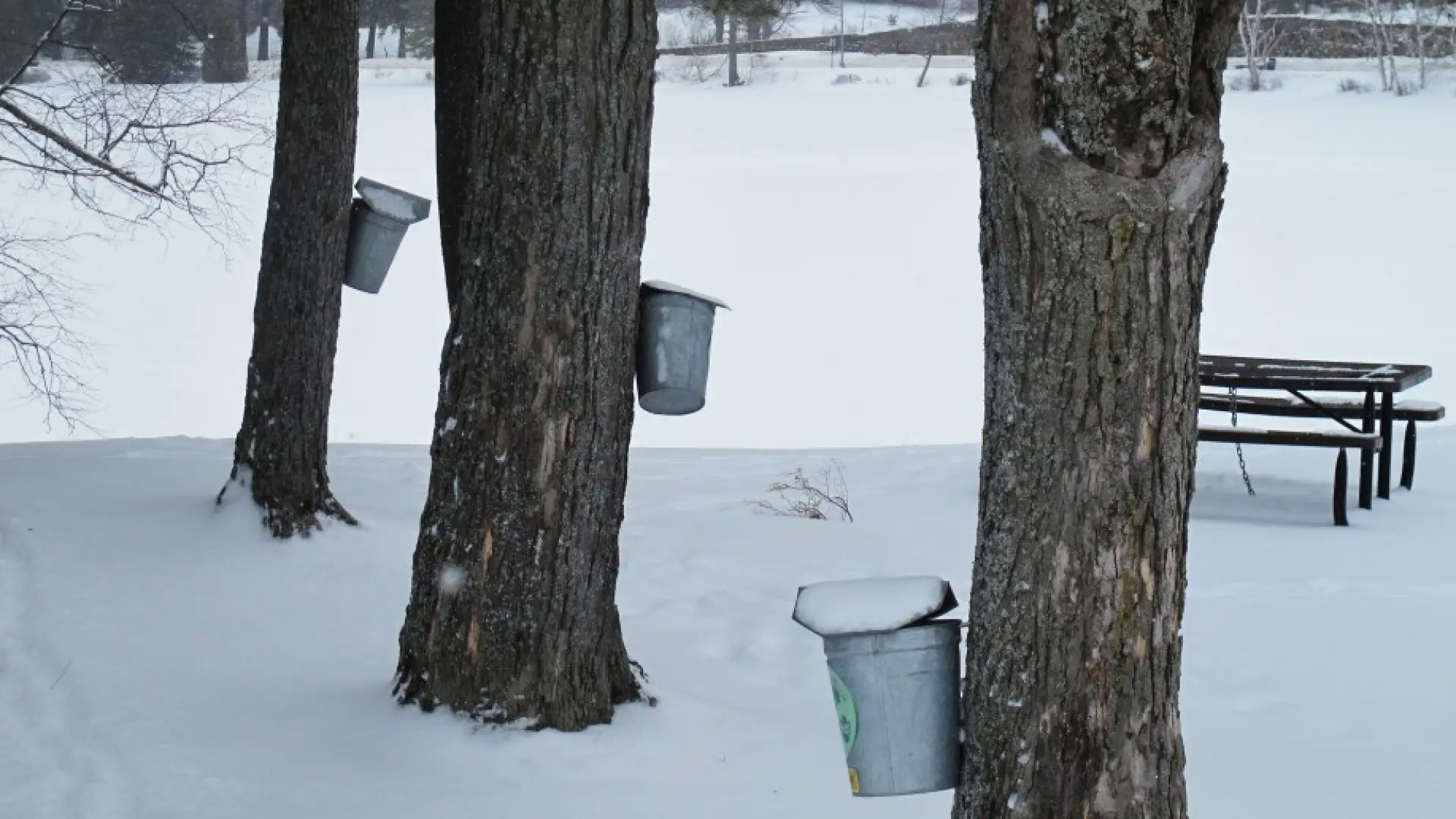
Historically, Tupper Lake was home to the largest maple operation in the world in the early 1900's. This production fell off and Quebec, Canada, became the largest maple producer in the world, presently producing 80% of the world's supply. Maple is a $10 million industry in the US and $1 billion worldwide. There is enormous potential for growth here in New York State.
Recently several villages have undertaken community maple projects. In Lake Placid, the Shipman Youth Center taps approximately 50 or more trees, both on public and private properties around the village. They collect the sap and boil it down to sell as a fundraising project for the Center.
In Tupper Lake, what organizers thought would be a slowly building community program exploded this year. Private families participate by allowing tapping of their trees. The Wild Center syrup program has a seasonal staff of naturalists and community interns who tap the trees and collect the sap. It is then rendered into syrup at The Wild Center's evaporator, with the tree owners receiving half the syrup produced. What started with only 10 families three years ago and 23 last year, has exploded this year with about 50 families and over 435 taps around the Village of Tupper Lake. The organizers say the project has created productive intimate connections with the community and allowed them to collect a great deal of data.
In Paul Smiths, the Paul Smith's College VIC now taps about 1,500 trees and is expanding. They can process approximately 200 gallons an hour with their reverse osmosis method, which removes a large percentage of water prior to the start of boiling, thereby greatly reducing boiling time. The VIC also has an "Adopt a Maple Tree" program, costing $25. For your fee you get unlimited visits to your tree and a gallon of syrup back. They have "parents" now from 6 different states. The VIC also hosts workshops for beginning backyard producers. Their first workshop in February resulted in several people being inspired to set up their own home production, who are now boiling. Very exciting.
The potential for expansion of the maple industry in New York State is enormous. Only 1.8% of maple trees in the state are currently being tapped. Industry leaders are encouraging more and more small producers to get involved. Do some research into how easy it is to tap your own trees and maybe you'll be inspired to start tapping and get in on producing the most valuable liquid in the world.
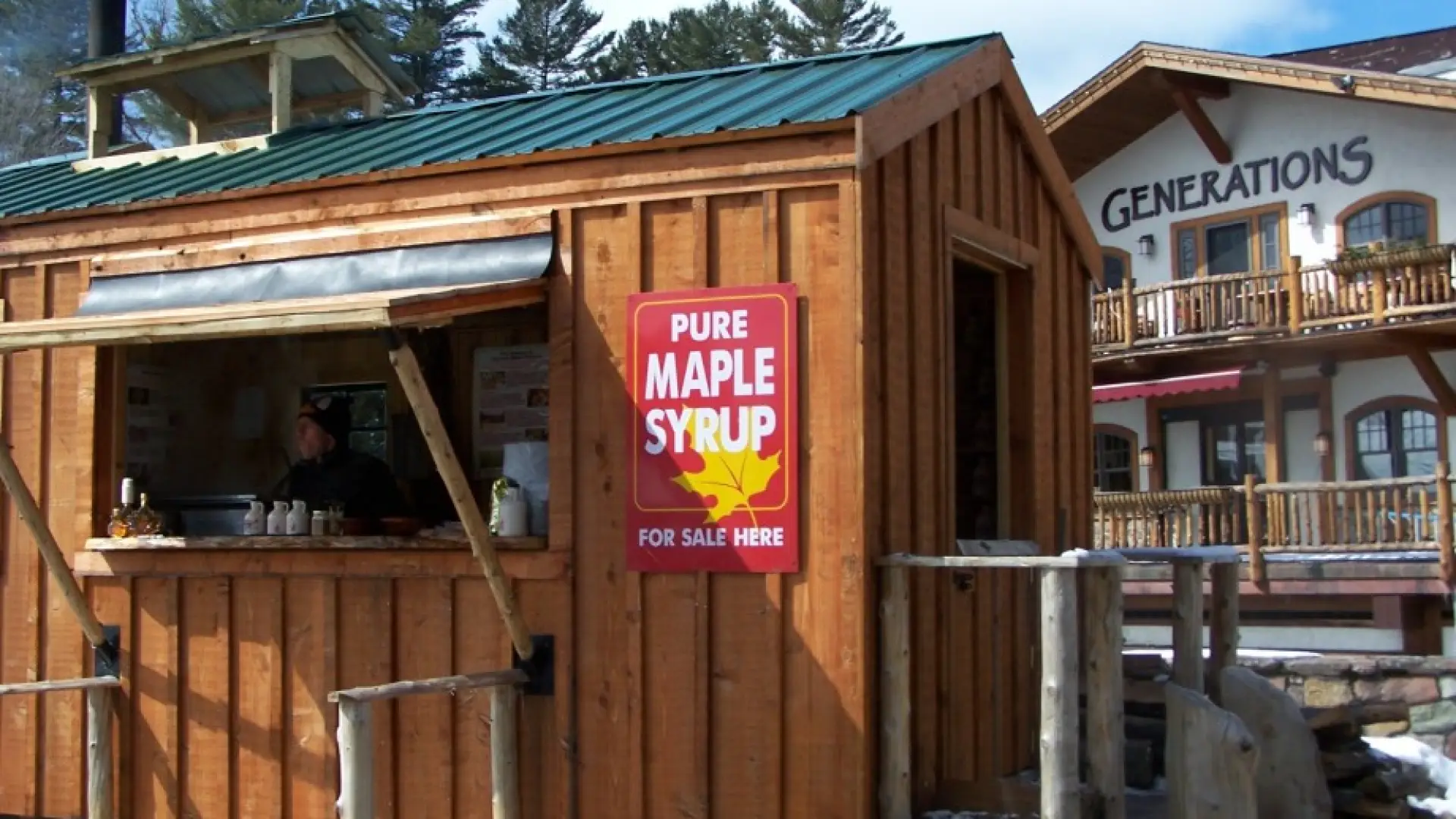
This coming weekend is the second and final Maple Weekend, sponsored by NYS Maple Producers. Many communities are getting on the bandwagon with maple festivals all over the state. Lake Placid is hopping on with "Sweetening Up Lake Placid". Many local businesses and maple producers are offering everything from tours of the sugar bushes and in-store promotions. If mother nature cooperates this week, you'll be able to witness the production of this finest of sweeteners over the weekend. Temperatures need to be several degrees above freezing for the sap to flow. Right now the forecast for the Lake Placid Region shows above freezing temperatures for the weekend and beyond. Come check out Maple Weekend anyway as you can still taste and buy everything maple, flowing sap or not. Stay overnight and make a weekend of it!
Maple's got everything going for it!

